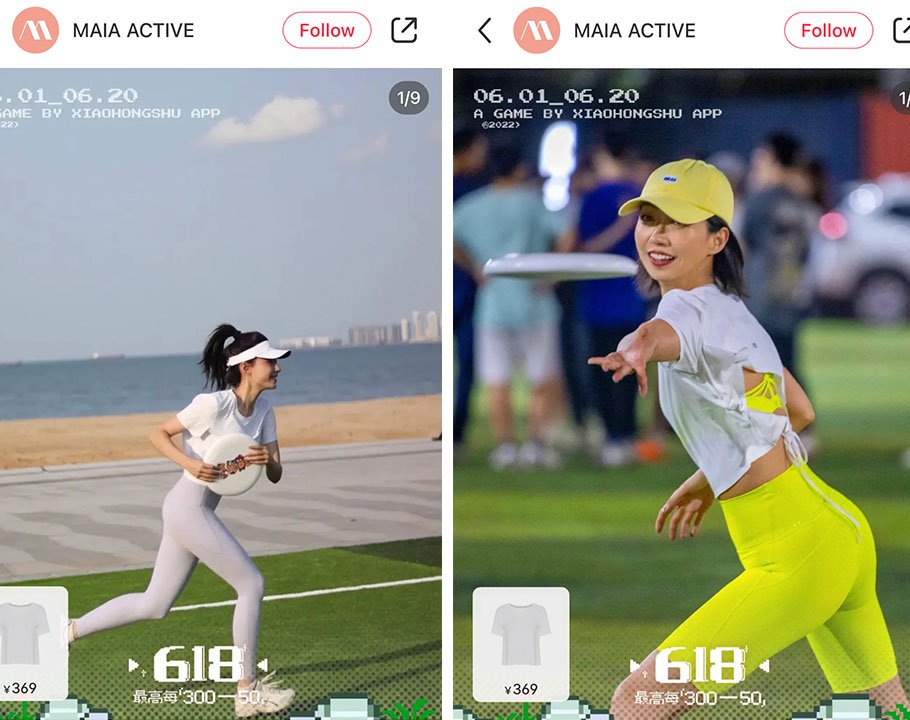From local activewear startups to the rise of niche sports, China's ever-changing fitness trends reflect a broad shift in values for Gen Z. [It’s All Working Out for Activewear in China – Jing Daily]
Locked-down sports enthusiasts the world over embraced at-home fitness during COVID. But nowhere is the phenomenon more pronounced than in China. During the past two months, when more than 45 cities across the country came under some form of restrictions, Liu Genghong (a Taiwanese singer-turned-personal trainer) amassed over 55 million followers by livestreaming workout sessions — breaking the record previously set by the livestream shopping star Li Jiaqi. Attending the workouts every night and, of course, sharing this on social media has become a popular way for mainlanders to cope.
Before COVID, China’s youth went on trips and shopping sprees. Today, restricted by the continuing travel ban, many have gravitated towards fitness instead. “Just a few years ago, regularly working out was seen as a Western habit. Now it is a cool and common thing for young people to do. Many of them grapple with anxiety and pressure in their personal life, and doing exercise provides them with a necessary outlet,” said Garry Deng, director of the Shenzhen-based high-end gym chain Fusion Fitness.
According to a 2021 report by Mob Research Institute, China’s workout population will reach 560 million by the end of 2030. Athleisure brands, including both international players like Lululemon and up-and-coming domestic labels, have been thriving in this fitness boom.
“Despite all that happened in the world, China delivered a really strong performance with total revenue increasing by more than 100 percent in the third quarter,” noted Lululemon’s CEO Calvin McDonald during a 2021 interview with South China Morning Post. Despite various local scandals about quality issues, the Canadian brand best known for yoga pants has expanded its retail footprint to 70 stores across the country since 2016. The company aims to quadruple its international revenue in the next five years by focusing on growth from the mainland.
As the global athleisure movement has expanded its influence in China, domestic labels have intensified the competition faced by incomers. Chinese sports giants Li Ning and Anta each launched their active lines by tapping heritage-inspired design and local celebrities. With younger consumers, local athleisure groups Neiwai Active, Maia Active, and Particle Fever score extra points by featuring Asian fit and feminine design details. In addition to this, newcomers Moly Vivi and She Is A Spark (founded by fitness influencer Zoey Zhou) are busy building fanbases that increasingly incorporate sportswear as an essential part of their street fashion style.
Unlike international sportswear brands that often rely on Western lifestyle concepts for ad campaigns, these domestic athleisure firms capitalize on local, emerging sports trends for marketing inspiration. For example, frisbee and flag football have become increasingly popular among younger urbanites over the past year. As the lifestyle platform Xiaohongshu’s official data reports, posts about #Frisbee six folded on the app during the past 12 months, while the search index for flag football grew 4,279 percent since 2022. Quick to spot the opportunities, the C-athleisure business Maia Active has since hosted Frisbee events and heavily featured the sport in its campaign posts.
From workout influencers to local activewear startups and the rise of niche sports, China’s ever-changing fitness trends reflect a broad shift in values. As lockdowns and uncertain economic outlooks continue to push health and wellness high on people’s priorities, younger folk are increasingly embracing active lifestyles as an essential outlet for stress relief. For brands, this consumer base represents a vast opportunity. But having even a near-perfect product is only the first step. What matters is making an authentic connection with these emerging communities.

